Opinion: The straight civil partnership ruling is a landmark for bisexual people too
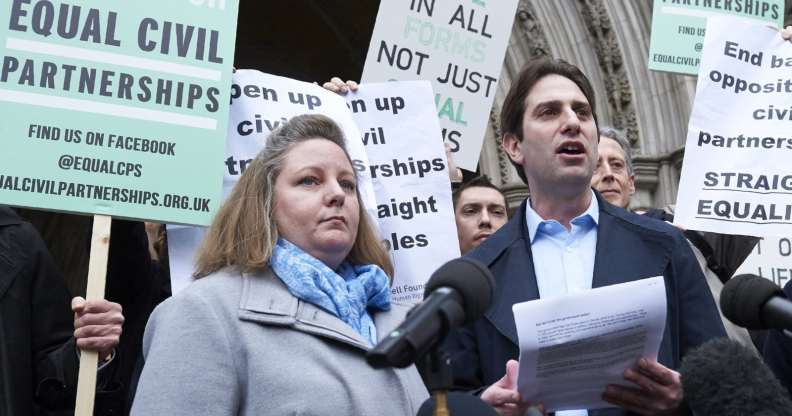
Rebecca Steinfeld (L), and her partner Charles Keidan address the media outside the High Court in London on February 21, 2017.
After fighting for more than a year to have a civil partnership, Rebecca Steinfeld, 37, and Charles Keidan, 41, won the right to carry out the commitment in a landmark ruling today (June 27).
Facing ridicule and judgement for their campaign, members of the public have been fighting for a “rudimentary” version of what they already have.
It’s easy to understand the attraction of a civil partnership. It’s a modern, civil service that removes all religious connotations from the ceremony, which are at times eye-rollingly patriarchal.
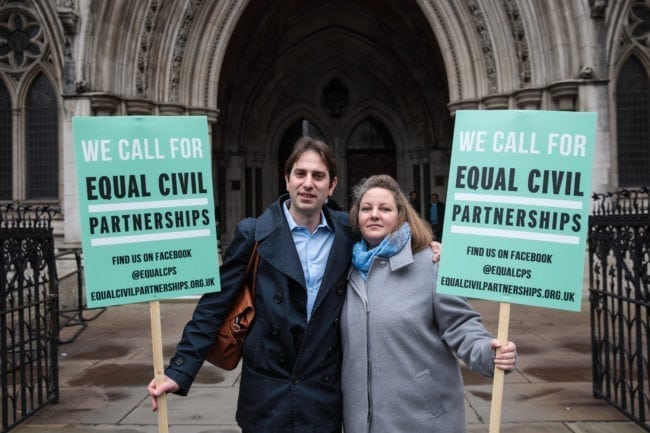
Charles Keidan and Rebecca Steinfeld (Jack Taylor/Getty Images)
But I’m not just commending the right for people of any sexuality to have access to another institution of commitment, I’m celebrating that bisexual people can finally marry on equal terms.
Bisexual people are often forgotten in the conversation about LGBT+ rights.
Considered to be not quite gay or not quite straight, they struggle to fit into the community – and are often not taken seriously.
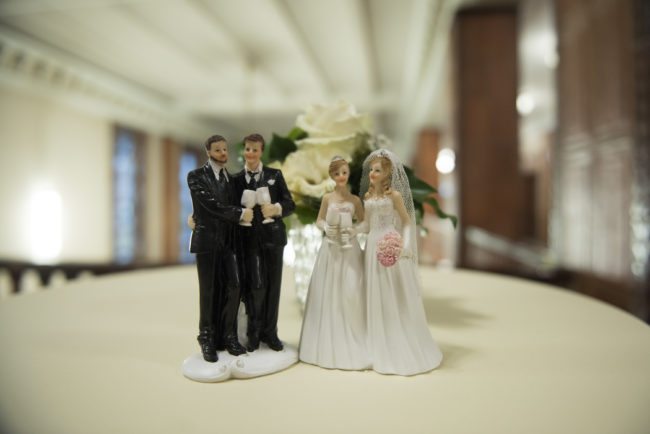
(Photo by Steffi Loos/Getty Images)
And if we are being offered the right to enter a civil partnership with someone of the same sex we deserve to have our orientation honoured with the same option with a member of the opposite sex.
For a bisexual person to be offered different options of how they can and can’t commit to a partner is not only insulting, but further invalidates how ill-considered and overlooked they are as a demographic in society.
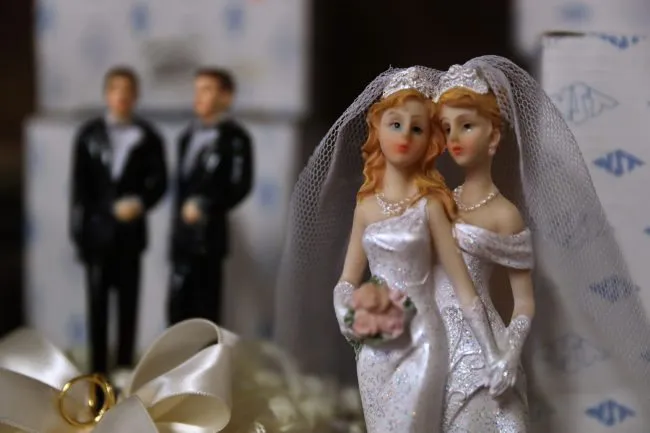
(Justin Sullivan/Getty Images)
But of course, for some people it’s not about the social recognition of their rights. Their marriage or civil partnership might be a personal event between their and their partner, something that can be made as simply and smoothly as possible.
Whether a bisexual person decides to commit to a mixed-sex partner or a same-sex partner, their sexuality is valid.
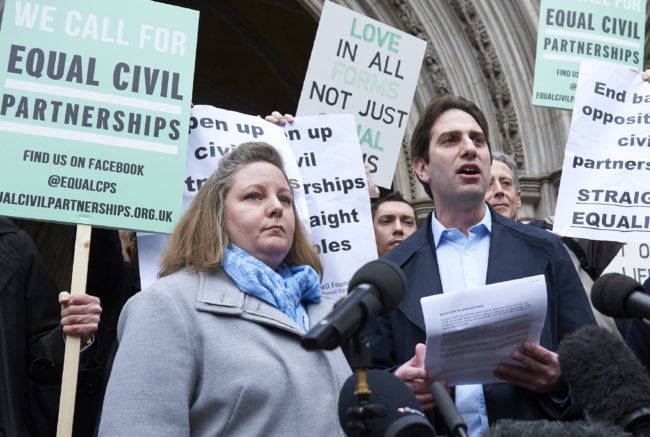
Rebecca Steinfeld (L), and her partner Charles Keidan address the media outside the High Court in London (NIKLAS HALLE’N/AFP/Getty Images)
And just as whoever they decide to commit to shouldn’t affect their identity, it shouldn’t affect their right to celebrate their definition of commitment, either.
I will always be frustrated that the civil partnership was offered to the LGBT+ community as a poor man’s marriage – and I don’t want the fact that straight people now have access to it to be its making.
But this ruling does allow bisexual people to celebrate their love with reverence and equity: and both forms of these commitments deserve our respect.

